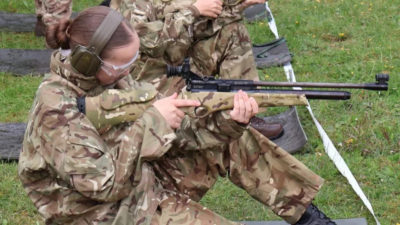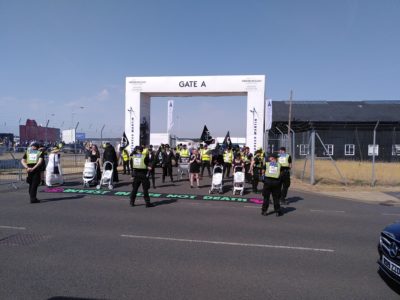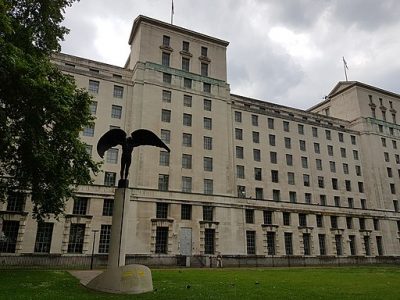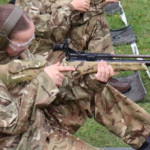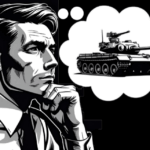The education system is not the place for militarised training of children
ForcesWatch
Michael Gove is again talking about extending the cadet forces within schools (see article), this time with the support from the Schools Commissioner (and a senior advisor to the Education Secretary), in comments about broadening the curriculum within state schools (see article). Before being elected, the conservatives ‘pledged’ to involve armed forces personnel more in schools to serve as role models for young people (see article). In 2011, the Education Secretary announced that expanding cadet forces would instil a ‘spirit of service’ in young people (see article)– a turn of phrase that in itself suggests ‘the military spirit’ and the associated values that go along with it.
Why is the military considered uniquely able to develop a ‘spirit of service’ or promote a disciplined approach? Why does the Schools Commissioner regard Cadet forces amongst a small handful of activities that are seen as broadening the curriculum and offering more opportunity with state schools? Who is being served by children in schools doing drill in the school playground or taking part in adventure activities? There would seem to be many other opportunities available for young people to experience a more direct connection with the concept of ‘service’, through developing extra-curricular activities that engage with the wider community or through activities that reply on team work and shared responsibility. If, however, it is actually service to the country that is being promoted, encouraging the widespread development of cadet forces feels more about serving the needs of the military and state than those of children. Educational establishments are not the place for this.
The rhetoric around increasing military influence within schools is one of instilling discipline and values but it is based on assumptions that are weak – not only that those who have served in the military are more equipped than teachers and other figures of influence to deal with youngsters but that military values, the ‘military spirit’ is one that is appropriate within the educational system. Do parents look to the military as embodying values they wish their children to absorb? Do parents want their children to handle weapons and take part in militarised training? Those families and youngster who wish to be part of cadets are able to join a cadet force in a local town as they exist the length and breadth of the country and is already the largest youth organisation in the UK.
The foundation of the policy is actually located elsewhere. The 2008 report National Recognition of our Armed Forces included increasing and strengthening cadets forces in its recommendations to ‘encourage greater understanding and appreciated of the Armed Forces by the British public’. The MOD 2007 report Engagement with UK Schools report is explicit about it the value to the armed forces of activities in schools including to ‘provide positive information to influence future opinion formers, and to enable recruiters to access the school environments.’
The CCF, as well as other forms of military engagement with schools, are funded by the MOD. It is an investment for the future. Recruiting young people as supporters of the armed forces and, in the longer term, softening some of them up for actual recruitment into the services.
The military have extensive programme of engaging with children in schools already. They are keen to exploit their impressionability and activities within schools allows them access to young peoples minds within a system that children and parents can have little influence over. Such engagement focuses on the immediate benefits to the young person and tends to glamorise warfare and a life in the forces, rather than honestly dealing with the risks and challenges that will be faced, the ethical issues and the long-term effects of being involved in conflict.
Schools are already well equipped to provide experiences that foster responsibility and a disciplined approach, team building, leadership. With so much conflict in the world, surely the education system is the place to foster initiatives that counter conflict and violence and build peace, rather than promoting the old ‘traditional’ approaches to what young people ‘need’ that are designed to feed into ‘traditional’ ways of solving conflict, through military action rather than a more creative and critically aware response.
See more: cadets, military in schools/colleges, military ethos
Like what you read?
> Sign up for our newsletter or blog notifications
> Support our work – from just £2 a month

